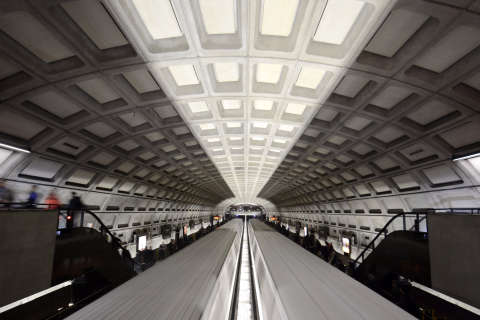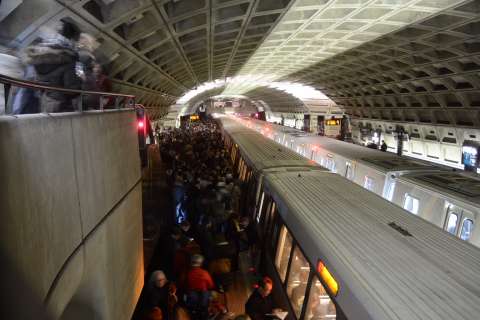WASHINGTON — Metro’s move to raise fares and cut service starting this summer could just be the start, given significant maintenance and construction needs that are projected to jump as soon as next year.
“There are no other places to go to get funding other than the jurisdictions,” Metro Board Chair and D.C. Councilmember Jack Evans said. “There’s going to be an enormous need for Metro.”
He supports a regional, dedicated tax that would require approvals from the state legislatures in Maryland and Virginia.
“The Virginia and Maryland legislatures — this is their time, when they meet next January to decide whether a dedicated funding source is going to happen or not,” Evans said. “If they don’t act next year, then it’s going to be very difficult for Metro.”
General Manager Paul Wiedefeld said Thursday that he will take on a more public role in coming weeks pushing for changes to Metro’s funding and cost structures.
“When Paul makes a statement about his view of where we are, it’s going to carry a lot of weight,” Evans said.
No fare hikes next year
Evans, who wanted the region’s governments to pay more this year to avoid a fare hike, said there will not be fare hikes next year.
“Metro has a policy of not raising fares two years in a row, not cutting service two years in a row, so now those issues are off the table,” Evans said. “So as we go into fiscal year ’19, and we approach the jurisdictions, Maryland, D.C. and Virginia and the federal government for more funding, it is no longer possible for the leadership in those jurisdictions to say raise fares ‘cause we did that. It’s not possible to say cut service ‘cause we did that.”
That policy is not binding, and has not always been followed.
This summer’s fare increase is the first in three years. The service cuts include rush-hour trains scheduled every eight minutes at the ends of each line rather than every six minutes, less frequent buses on routes including the 5A and B30 to and from Dulles and BWI-Marshall airports, and the elimination of buses like the W19 Indian Head Express, J5 Silver Spring-Twinbrook Route, 28X Leesburg Pike route and 2T Tysons Corner-Dunn Loring route.
Combined, the budget has prompted warnings from union leaders and even a Metro Board member that it could spark a so-called “death spiral” of further declines in ridership that would fuel further cuts in scheduled service.
“I think what drives Metro riders away is just one thing, and it’s reliability. I don’t think safety drives Metro riders away, I think this is a much safer system than people think,” Evans responded. “It is expensive but it does not, in my view, drive the riders away as much as ‘I want to get to work on time. I want to get on this train, I want to get off this train, and I want certainty that it’s going to work, and that I’m not going to end up being single-tracked or stopped or things like that.”
Metro is working on those long-term fixes.






